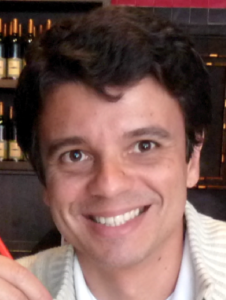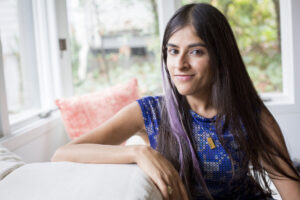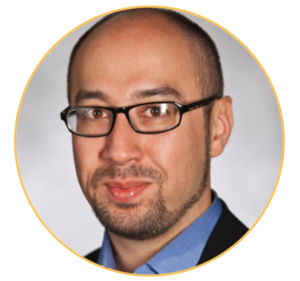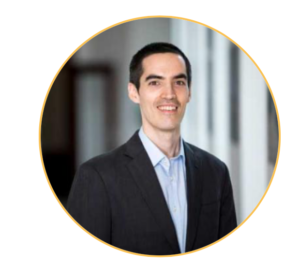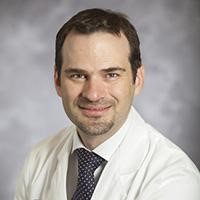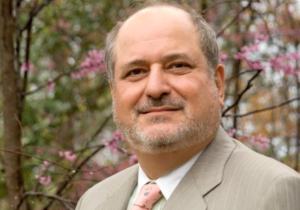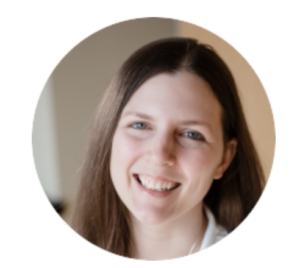Each Spring, Emory’s Office of Technology Transfer hosts an Annual Celebration of Technology and Innovation. In preparation of announcing the 2021 awardees, we spoke with several award recipients from 2020 about their experience with OTT’s Annual Celebration.
2020 Innovation of the Year – Autonomic Formation of Large-Scale Wireless Mesh Networks; Sergio Gramacho, Ph.D.
Can you introduce yourself?
“I am Sergio Gramacho, an avid learner and applier who had the opportunity to formally study Electrical Engineering (BS), Business (MBA) and Computer Science (Master, PhD) in different moments of my career.”
What did you enjoy about winning an award?
“This award was crucial for me and my project partner, Dr. Avani Wildani. Dr. Wildani was my Ph.D. advisor, and the news of this award came about 2 months before my Ph.D. defense. Together with positive feedback from recent paper submissions, it was the final sign that I was ready for defending my research.”
Can you tell us a little bit more about the technology that you received the award for?
“We conceived, designed, and proved practical the formation of wireless mesh networks by independent and autonomous agents, organized in controlled partitions. Also, by design, the solution is resilient to changes in the network nodes over time (self-healing characteristic). This technology has the potential to create large telecommunication networks without large companies using simple (low reliability) network nodes. The solution technology is heavily based on software, for maximum adaptation to different settings. We hope that this innovative mode of network creation will allow networking underserved regions of the world, including areas of the U.S.”
Did the award have any impact on your lab or family?
“My family was ecstatic about the news. We were in the expectation of having my Ph.D. defense, and the award came as a critical recognition of the value of my research. One person, however, was especially happy: my father-in-law. He was on travel, staying with us in December 2019 when I was actively working with OTT. He gave me multiple suggestions regarding potential applications if the patent was granted.”
What has happened since the award?
“In partnership with the Office of Transfer Technology, we have a patent application that has moved to its final phase.”
Is there anything else you would like to share about the experience?
“I really enjoyed the opportunity of working with OTT. They made something that seemed extremely difficult to execute and distant for us, a patent application, seamless. I strongly recommend to other researchers and students this experience.
Can you use one word to describe the event?
“Realization.”
2020 Innovation of the Year – Autonomic Formation of Large-Scale Wireless Mesh Networks; Avani Wildani, Ph.D.
Can you introduce yourself?
“I am Dr. Avani Wildani. I am a fifth year Assistant Professor in Computer Science, formally computer science and math. I primarily work in computer systems now and essentially how information is understood and represented in different spaces can be biological and mathematical spaces that allow us to work in different areas. I do a lot of work with public health, particularly, environmental health recently on transferring knowledge modules between different areas. Also, we do some work in understanding and moving some information around between different storage devices.”
What did you enjoy about winning an award?
“I was very happy for Sergio, who is the main person on this project, this was a project he was passionate about when I first met him. Seeing Dr. Sergio Gramacho’s hard work come to life was very rewarding for me.”
Can you tell us a little bit more about the technology that you received the award for?
“At a high level, we tried to build a mesh network. So, a mesh network when you put together the internet and wires and connections can become complicated. In some places, such as a festival or sports stadium or even in disadvantaged areas of the world, that can be a lot of overhead. What we want to do is allow computers to come together. The problem with this is there is a lot of overhead where the computers communicate asking one another, “are you still alive? Yes! I am still alive.” Because of overhead, as you add more and more computers the network becomes slower and slower due to asking one another if they are still alive. This is a concept called negative scaling. The goal of this project was to diminish negative scaling by creating clusters that individually communicate and essentially creating a virtual network or a software designed network over this mesh. That allows a super-linear scale, rather than a sublinear scaling, allowing a larger network.”
Did the award have any impact on your lab or family?
“The glory of this project goes to Dr. Sergio Gramacho and he ended up accepting a job at Emory University as a software engineer within our department.”
Is there anything else you would like to share about the experience?
“I think the Emory Office of Technology Transfer is very nice, it allows technology to be more directed to an applied world. When Dr. Sergio Gramacho was working with Emory Office of Technology Transfer, he had some great ideas of how to translate his work into an applied span and this was very helpful for him.”
Can you use one word to describe the event?
“Efficient.”
2020 Innovation of the Year – Software to Derive Brand Insights from Mobile Location Data; David Schweidel, Ph.D.
Can you introduce yourself?
“My name is David Schweidel. I am a professor in marketing in Emory University’s Goizueta Business School. I received my B.A. in mathematics, M.A. in statistics, and Ph.D. in marketing from the University of Pennsylvania.”
What did you enjoy about winning an award?
“I enjoyed many things. We were surprised initially, but it was a nice recognition. Especially, giving the breadth of work that happens at Emory University and be included amongst this group of award recipients.”
Can you tell us a little bit more about the technology that you received the award for?
“Mobile Location Analytics (MLA) is a type of customer intelligence that works to track smartphone locations. This geo-technology can then be matched to locations of interest such as other retailers. Today, people are more familiar with mobile location data than ever before. All of the apps on our phone ask us permission to access our camera or even microphone and, in some cases, a mobile application will ask if it can use your location. Thus, we partnered with a company that provides location services for many of those apps. That allows us to gain access to location history and anonymize data. With that, we can follow the same device and see if it goes to a particular restaurant or venue, or what types of businesses in general. This data was obtained without having to find who owns this particular device.”
Did the award have any impact on your lab or family?
“This was validation of our early work with this company. Since this award, we have continued to work on projects with them and are in the process of doing a larger study. At this moment, we are preparing the manuscript from data that they have given of devices collected in the year 2020 in the state of Georgia. We are looking at how COVID-19 impacted people, but also businesses. Despite the shelter in place order being lifted in the state of Georgia, people have decreased frequency of going to retailers and other businesses. Now we are looking at the economic impact of COVID-19 has had in the state.
We are also doing a different project and how COVID-19 may have changed our social interaction. This project is an emphasis on the social network structure within metro Atlanta. Asking the question, “how are people socializing with each other?” We plan on looking at that social interaction data as a precursor to COVID-19 spreading or maybe individuals considering socializing less. The field of marketing has fundamentally changed more and has become much more data driven. This is a new source of data we are seeing becoming more available to marketers.”
Can you use one word to describe the event?
“Impressive. If you look at the range of work being conducted at Emory University, we have the healthcare side of Emory, and there are other divisions making a great impact.”
2020 Innovation of the Year – Software to Derive Brand Insights from Mobile Location Data; Daniel McCarthy, Ph.D.
Can you introduce yourself?
“My name is Daniel McCarthy, and I’m an Assistant Professor in the marketing department at Emory University’s Goizueta School of Business.”
What did you enjoy about winning an award?
“It means a lot when a project you’ve spent a considerable amount of time working on gets some sort of external validation. For an award like this, it is a great indicator that the potential for the project to have an impact is high. As someone who is particularly interested in writing high-impact papers, this is important.”
Can you tell us a little bit more about the technology that you received the award for?
“The technology is essentially an algorithm that allows us to infer customers’ preferences for brands from their geolocation data (i.e., data representing the raw pings that mark where a panel of consumers have been over time).”
What has happened since the award?
“The project continues to evolve. My co-author, David Schweidel, is using a very similar geolocation dataset to bring to life a much more sophisticated model for customer behavior, and in turn, is applying it to study the impact of COVID-19 across a variety of different product and service categories.”
Is there anything else you would like to share about the experience?
“I’m grateful to the Office of Technology Transfer for taking an interest in this work, and hope to come to them sometime soon as other technologies bubble up from my research!”
2020 Deal of the Year – Kodikaz Therapeutic Solutions – Circulating Tumor DNA for Targeted Cancer Therapeutics; Leon Bernal-Mizrachi, MD
Can you introduce yourself?
“Leon Bernal-Mizrachi, MD, I am the Associate Professor in the Department of Hematology and Medical Oncology at Emory University School of Medicine and Chief of Hematology and Medical Oncology at Winship Cancer Institute at Grady Campus and Co-Director of the fellowship program.”
What did you enjoy about winning an award?
“I was not expecting it, I did not know I was nominated. It was a very pleasant surprise. This project has been a hustle and it has overcome a lot of obstacles, and starting to see recognition for the work was very encouraging for our group. It was a pleasant surprise and provided me with fuel.”
Can you tell us a little bit more about the technology that you received the award for?
“The discovery is based on an unknown phenomenon that occurs in cancer patients in which we demonstrated that cancer releases genetic material to the bloodstream. At the time, we did not know why. We found the reason was because it was a method of communication between cancer cells. We then took advantage of the mechanism that occurs and created a system to deliver cargo to cancer cells to kill them. An example or analogy of this would be a Trojan horse. We identified and we used that to deliver multiple different things to cancer therapy, such as chemotherapy, radiotherapy, fluorescent dye, or killer genes that only goes to cancer cells-not other areas. This is because we are hijacking normal mechanisms of cancer cell communication and we are taking advantage to deliver a killer mechanism to cancer cells.”
Did the award have any impact on your lab or family?
“Unfortunately, this award was given to COVID, as Chief of Hematology I was very busy. Sadly, this work did not have the sound or noise it deserved. It was a private enjoyment of family and friends, group, and lab. We have not had the opportunity to enjoy this award since the pandemic began.”
What has happened since the award?
“A company I founded with other colleagues has been awarded the Boehringer Ingelheim NYC Innovation Prize. We have been provided lab space for free on this award. Also, another important thing is we have secured investment from two venture capital groups. Our hope is that based on the results and speed we are moving, we will go for a major serious investment in a year or so. This will expedite maturing our technology and securing funding was crucial.
Since this award, as this is an unknown mechanism, we are trying to understand how it works. We are trying to identify two folds: one is the technology, how it is working and the normal biology of what occurs in the communication occurs within the cancer cells. Thus, we are advancing on what is the receptor of the genetic material in the cancer cells that allows it to only target that cancer cell. On the technology side we have advanced and have started identifying the efficiency of what we see and identifying limitations of the technology and impact of the type of cargo we put inside Trojan horse. This is an exciting moment we are learning as we do experiments, and it has been an amazing experience. There is no data in the literature about this, so we are pioneering this technology.”
Is there anything else you would like to share about the experience?
“This has been a great experience. This is the second time I have the chance to partner with industry. The first experience was very pleasant and this experience has been even more pleasant and opened a new opportunity for me to get to know brilliant minds in the field of science and understand how they think.
The second is that I learned that academia and industry are different in the threshold of acceptance. In industry the aim is to take it to clinical applications. The level of certainty of any result must be extremely solid and vetted by many individuals. In academia you are in your own lab. In this case, we send the technology to multiple labs to validate what we have seen. This has been very interesting. Finally, being exposed to the business side of technology and industry. This is an eye-opening experience for which as a physician or scientist you are not trained for.”
Can you use one word to describe the event?
“Persistence. This project has overcome the main obstacle for the fear of the unknown. Addressing something that is completely noble. People can discourage you or your results can discourage you. It is a matter of taking every result as a positive result. That has been the best thing. Keep your dream and be persistent and do not let anything stop you.”
2020 Start-up of the Year – Aligos Therapeutics, Inc. – Series B Financing; Raymond Schinazi, Ph.D.
Can you introduce yourself?
“I am the Frances Winship Walters Professor of Pediatrics at Emory University and Director of the Laboratory of Biochemical Pharmacology.”
What did you enjoy about winning an award?
“We get recognized for our work globally, so it is nice when we can get some recognition at the local level. It takes a village to develop a drug, but usually the chemists and biologists in academia who made the initial discovery don’t always get the credit. I believe giving credit to the team for the hard initial work is critical to encourage other young scientists at Emory to innovate and discover new drugs that can treat or cure difficult infections like hepatitis B virus (HBV).”
Can you tell us a little bit more about the technology that you received the award for?
“We’ve worked successfully in the past to find treatment for HBV infection and two major drugs are now FDA approved from this work including lamivudine (3TC) and telbivudine (LdT). However, although these drugs are effective virus suppressors in the liver and peripheral circulation, they do not cure. The holy grail has been to find a cure for HBV. The drug’s potency not only in cell culture, but now in humans, make them the best in class for suppressing and possibly eliminating HBV in infected individuals. These are the most potent drugs for HBV today with activity in the low sub-nanomolar range.”
Did the award have any impact on your lab or family?
“This discovery was made by a team in our lab including Drs. Sebastien Boucle, Franck Amblard and Leda Bassit. They are the heroes and deserve a lot of the credit. This discovery forges lifetime friendships and camaraderie among the inventors and provides confidence and real importance for them. Fortunately, my family is not affected by HBV since we were vaccinated many years ago. But there are over 400 million people who got the infection and that were not vaccinated that then go on to develop liver cancer (hepatocellular carcinoma).”
What has happened since the award?
“The drug is now on the verge of entering phase 2 multinational clinical trials. The preliminary results to date in humans infected with HBV have been very encouraging.”
Is there anything else you would like to share about the experience?
“Many drugs fail, and there are large cemeteries of drugs that have failed. However, one should remember that it is the drug that fails, not the scientists. Our job is to put our best foot forwards and hope there are few or no unforeseen road bumps on the way to drug approval.”
Can you use one word to describe the event?
“Gratitude.”
2020 Significant Event of the Year – Meissa Vaccines, Inc. – License Agreement & Series A Financing; Christina Rostad, MD
Can you introduce yourself?
“I am a Pediatric Infectious Diseases physician at Children’s Healthcare of Atlanta and an Assistant Professor of Pediatrics at Emory University. I do clinical and translational research in vaccine development, with a focus on respiratory syncytial virus (RSV).”
What did you enjoy about winning an award?
“This award was a much-appreciated honor, as there are many wonderful technologies being developed at Emory.”
Can you tell us a little bit more about the technology that you received the award for?
“This award was for the development of RSV live-attenuated vaccine technology applied to boost immunogenicity and attenuate viral replication through targeted modifications of the RSV genome.”
Did the award have any impact on your lab or family?
“My laboratory continues to pursue innovative strategies to develop RSV live-attenuated vaccines, including developing single-cycle vaccines with stabilized pre-fusion F and de-shielding immunodominant epitopes through deglycosylation.”
What has happened since the award?
“This technology has been licensed to Meissa Vaccines, Inc., with Series A financing, and phase 1 clinical trials scheduled to begin later this year.”
Is there anything else you would like to share about the experience?
“I would like to thank Dr. Martin Moore, who was the principal investigator of this research and my mentor during fellowship. I would also like to thank the co-inventors, Drs. Christopher Stobart, Anne Hotard Lopez-Ona, Jia Meng, and Elizabeth Laikhter, in addition to my wonderful mentors, and colleagues who made this possible.”
Can you use one word to describe the event?
“Innovation.”
